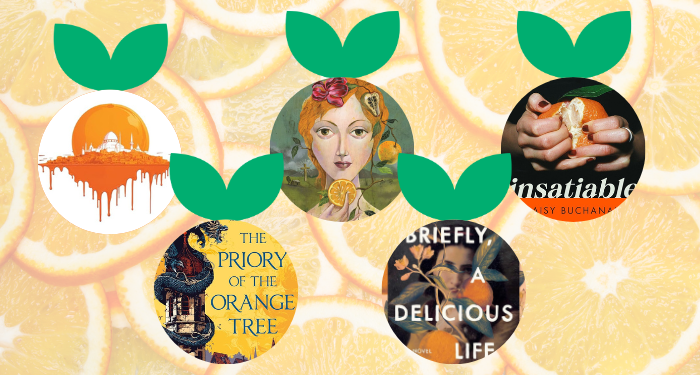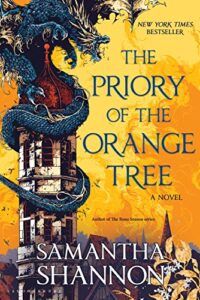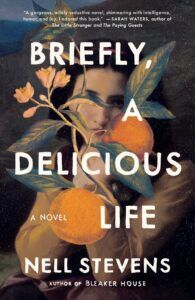
Not the Only Fruit: The Significance of Oranges in Queer Literature
In the 1970s, gay bars stopped serving screwdrivers and started serving the Anita Bryant Cocktail: a version of a screwdriver that replaces orange juice with apple juice. Anita Bryant was a beauty queen, a singer, the spokeswoman for the Florida Citrus Commission — and a notorious anti-gay activist. She fought to repeal gay rights and perpetuated homophobic rhetoric about gay people recruiting children. Queer people responded by boycotting orange juice and throwing pie in her face.
It’s been almost 50 years since Anita Bryant’s contract with the Florida Citrus Commission was terminated, and oranges show up in several of the most well-known queer book titles, from 1985’s Oranges Are Not the Only Fruit by Jeanette Winterson to 2019’s The Priory of the Orange Tree by Samantha Shannon. Much like I analyzed the meaning of pickup trucks in queer YA, I wanted to take a look at the symbolism of oranges in queer lit today.
In Jeanette Winterson’s classic work of lesbian literature, the main character’s abusive, homophobic mother hands her an orange instead of providing any comfort — and only ever oranges. To her mother, oranges are the only fruit. But as Jeanette grows up, she realizes that there are a lot more possibilities than just the narrow life her mother has raised her in: there are many more fruits in the world. This was published less than ten years after the Anita Bryant events, and while Jeanette Winterson was writing in England and not the U.S., I don’t think it’s a coincidence that oranges stand in for the repressive and religious life that the fictional Jeanette’s mother espoused.
As we get further from the 1970s, though, that negative association between queerness and oranges begins to fade. In the 2022 literary ghost story Briefly, A Delicious Life by Nell Stevens, the oranges on the cover symbolize the sensuality of life — the sweetness and scent of oranges are something our ghost main character can’t access herself but has to experience through living people’s senses.
Relatedly — and ironically — oranges are associated with love and lust in many other queer novels. The cover of Insatiable by Daisy Buchanan shows a woman’s hands tearing into an orange suggestively — fruit is a common star of sexually suggestive book covers. In Insatiable, the main character finds herself in the relationship of a rich, older couple and their sex parties, and the cover mirrors the eroticism of the plot.
In the manga A Passion Of Oranges by Ruis Maki and Citrus by Saburo Uta, oranges symbolize romantic and sexual passion. It’s especially apt for the Citrus series, which has a main character named Yuzu: a citrus fruit that resembles a mandarin orange crossed with a lemon. The couple in Citrus is a classic grumpy/sunshine combo, just like the sour and sweet of citrus fruits. Their dramatic relationship also combines sweet and sour notes.
Oranges can also have cultural significance: in the collection Blood Orange, trans Palestinian Yaffa poet nods to Yaffa oranges, which are produced in Palestine and have been appropriated by the British and Israel. “Blood orange” brings to mind Yaffa’s homeland as well as the blood that has been shed there.
I find it fascinating how something as arbitrary as oranges can take on such significance in queer culture, from the 1970s orange juice boycotts to the 2020s novels that use oranges as a symbol to celebrate queer love and sex.
What are you reading? Let us know in the comments!
The comments section is moderated according to our community guidelines. Please check them out so we can maintain a safe and supportive community of readers!






Leave a comment
Become an All Access member to add comments